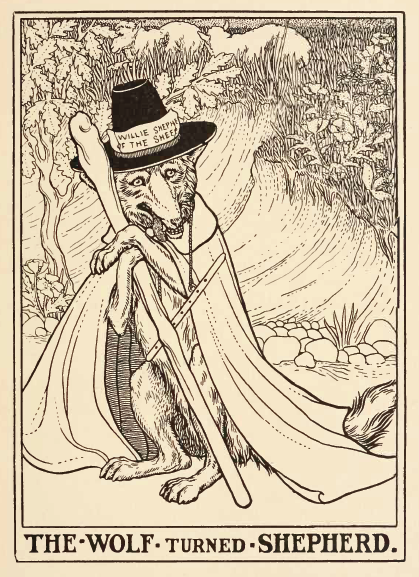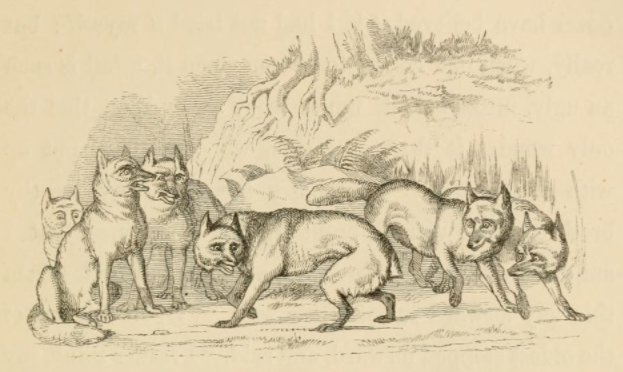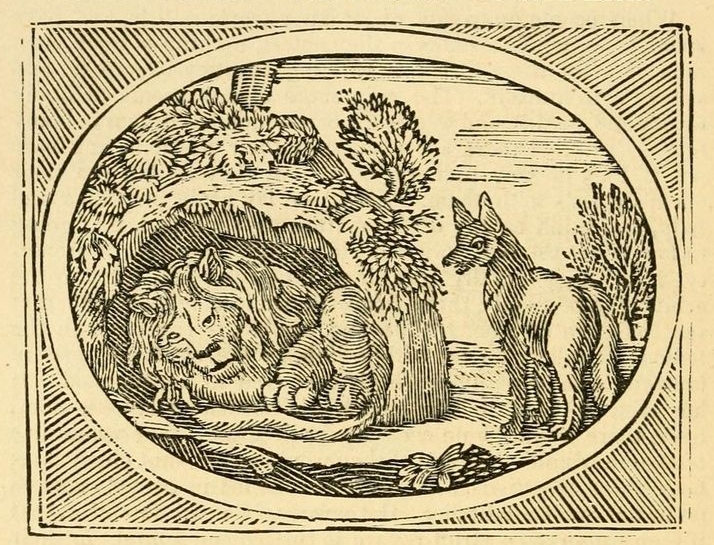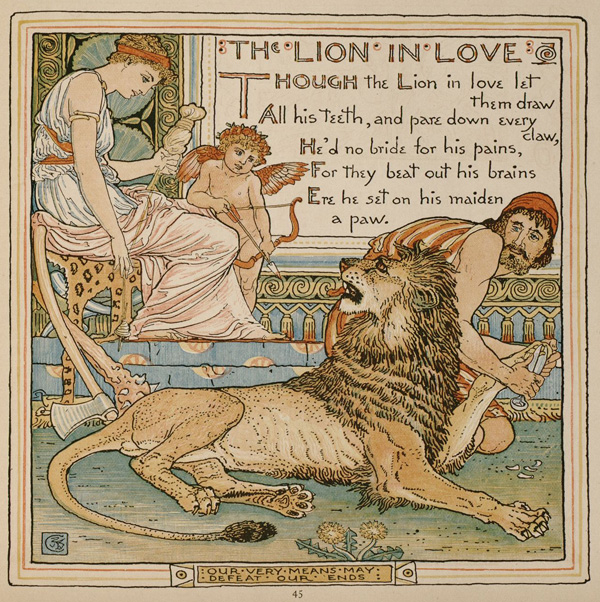Lupus pastoris oves surripere non potest.
Cogitat itaque, "Opus mihi est dolis!"
Lupus ergo pastoris vestimentum induit. Pastoris personam praeclare agit!
Baculum tenens, lupus pedibus prioribus ambulat. Pastori in gramine dormienti appropinquat. Pastoris canis quoque atque oves dormiunt.
Lupus tacet primo, et sic oves facile surripit.
Sed mox pastoris vocem vestimentis addere vult. Vocem autem imitari nescit; ululat ergo, et silvae ululatu eius resonant.
Ita excitati sunt omnes: pastor, canis, et oves.
Pastor lupi dolos cognoscit.
Lupus miser, vestibus impeditus est; effugere non potest, nec se defendere.
Fabula sic docet:
Doli periculosi sunt semper.
Lupo melius est lupi vestimentum gerere.
Inspired by: Mille Fabulae et Una.
Notes: This story is Fable 85. Lupus et Pastoris Vestimentum, from La Fontaine. I have simplified the story, making it easier to read. For an English version (not a translation), see: The Wolf Who Herded Sheep.





























